The Impact of AI on Travel – From Booking to Boarding
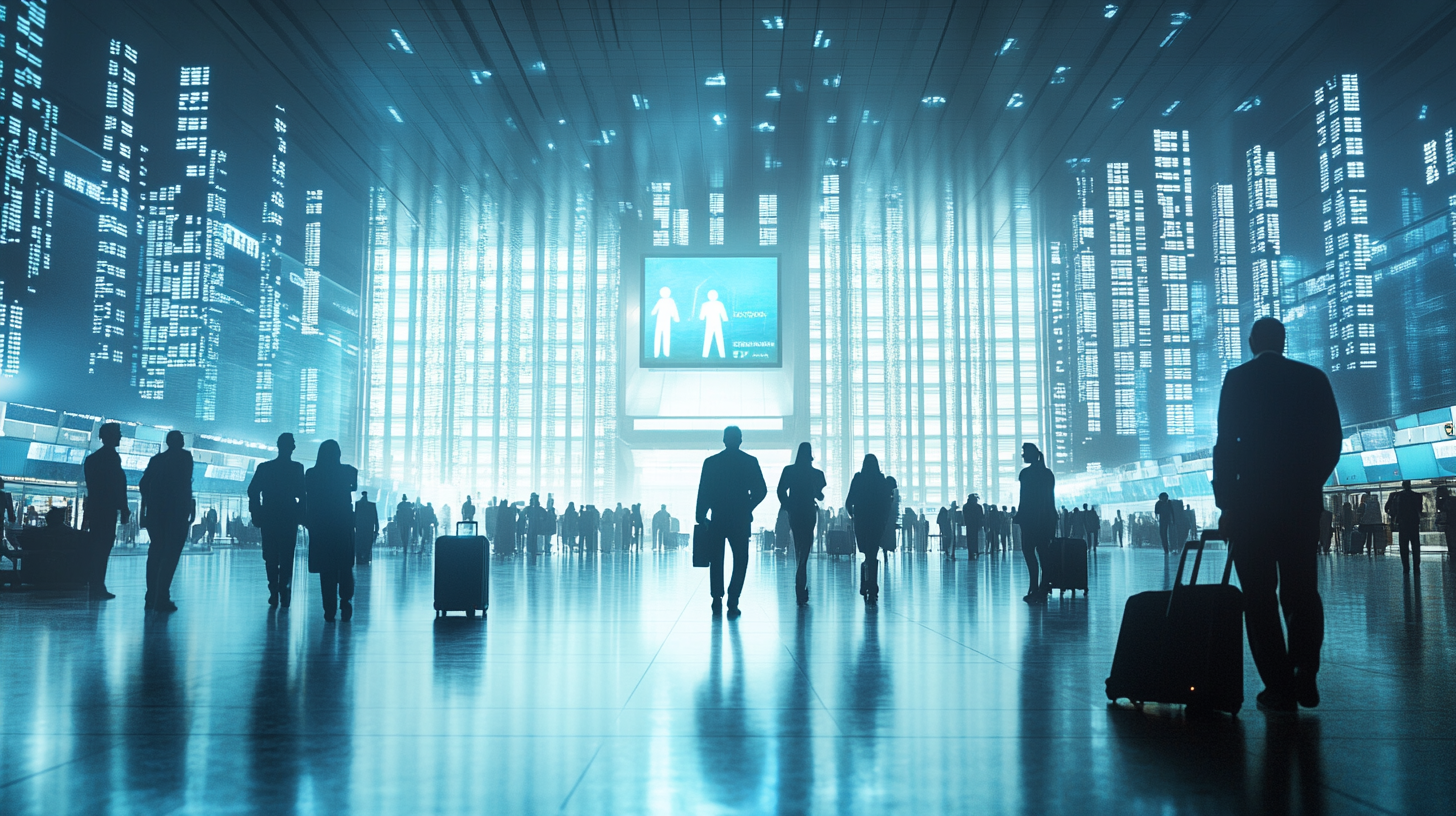
The travel industry is undergoing a transformative journey, propelled by the rapid integration of artificial intelligence (AI) technologies. From streamlining booking processes to enhancing in-flight experiences, AI is revolutionizing every facet of travel. As “revenge travel” takes off in the wake of the pandemic, with people eager to make up for lost time and explore the world again, the adoption of AI has never been more crucial. Travelers are seeking seamless and personalized experiences, and AI is stepping in to meet these demands. For instance, AI-powered travel apps are offering personalized itineraries that cater to individual preferences, making travel planning more intuitive than ever before AI-powered personalized travel itineraries . This comprehensive exploration delves into how AI is reshaping the travel landscape, enhancing efficiency, personalization, and sustainability from booking to boarding.
AI in Booking and Personalization

One of the most significant impacts of AI in travel is the enhancement of the booking process through personalization. By leveraging machine learning algorithms, AI analyzes vast amounts of data on traveler behavior, preferences, and past booking patterns. This enables travel companies to offer tailored recommendations and dynamic packages that align closely with individual needs. For example, if a traveler frequently books beach vacations, AI can highlight similar destinations, accommodation options, and activities, streamlining the decision-making process. This level of personalization not only improves customer satisfaction but also increases conversion rates for travel companies How AI personalizes the travel booking experience .
Over 50% of travel buyers plan to increase their AI budgets to improve service, personalization, and booking simplicity. AI-driven systems offer 24/7 support and tailored recommendations, making the booking experience more efficient and user-friendly. Virtual assistants and chatbots, powered by AI, can handle inquiries at any time of day, providing immediate responses and suggestions. Companies like CapRelo utilize AI for efficient and customized relocation services, combining advanced technology with real-time support through platforms like CompanionFlex. This integration of AI not only accelerates the booking process but also enhances the overall customer experience by providing relevant options and reducing the time spent searching for information AI’s role in enhancing travel customer service .
Despite these technological advancements, many travelers remain cautious due to trust and privacy concerns. Data privacy and the fear of personal information misuse are significant barriers to the full acceptance of AI in travel. While 61% of consumers are open to using AI for trip planning, they often prefer to verify AI-provided information with human agents or trusted sources. For instance, a traveler might use an AI-powered app to generate a travel itinerary but will still consult reviews or contact customer service before finalizing bookings. This behavior highlights the ongoing need for human expertise and local knowledge in creating seamless travel experiences. Balancing AI innovation with robust privacy measures is essential to building consumer trust Addressing privacy concerns in AI-powered travel services .
Enhancing Customer Service with AI
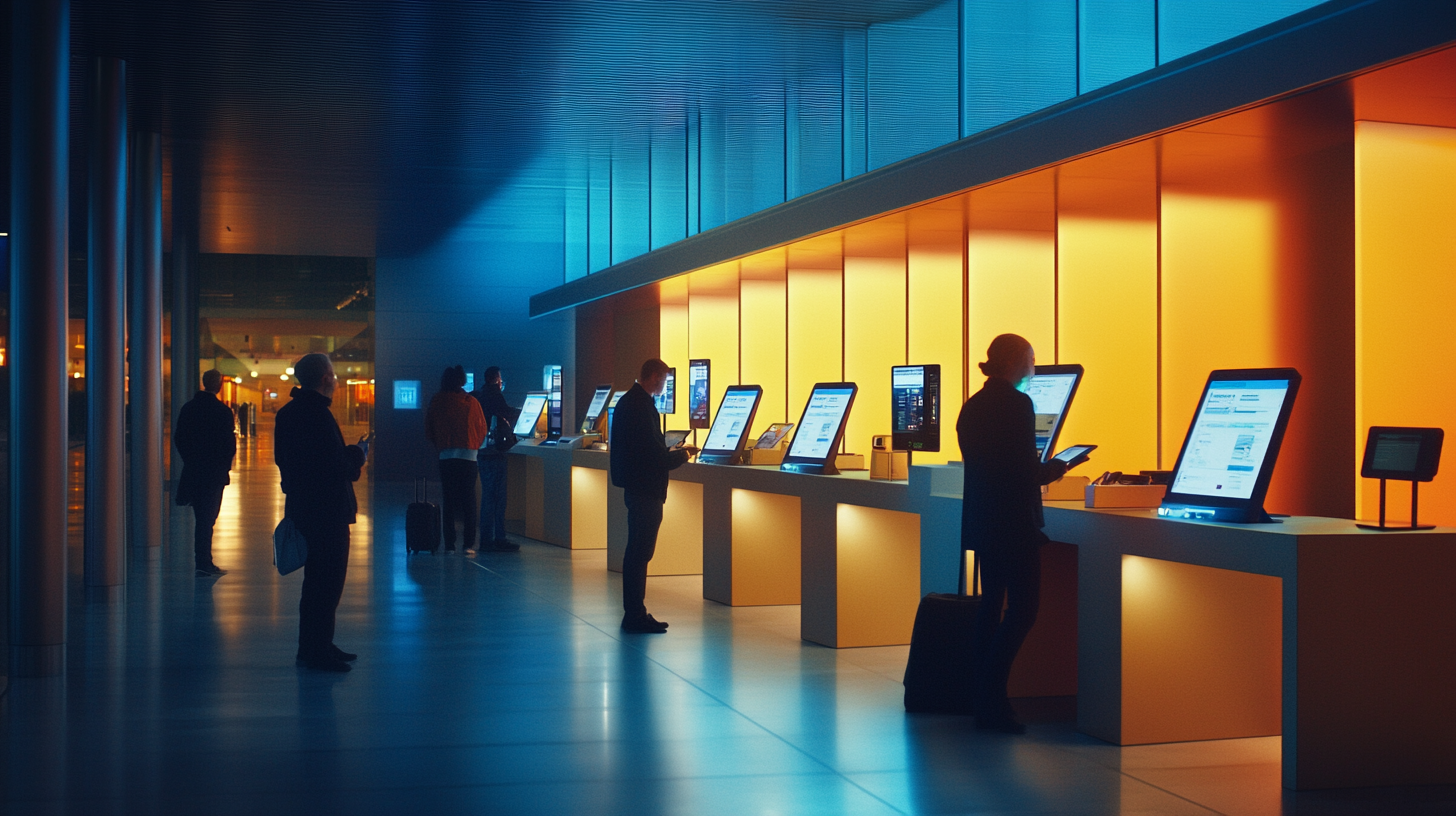
AI is significantly improving customer service within the travel industry through the use of chatbots and virtual assistants. These intelligent tools offer real-time, multilingual support, breaking down language barriers and catering to a global customer base. Chatbots can handle a wide range of routine inquiries, from flight status updates to baggage policies, allowing human agents to focus on more complex or sensitive issues. For example, AI-powered platforms like Swifty by Lufthansa automate travel planning, providing efficient customer service experiences that are both swift and accurate. Additionally, these virtual assistants can learn from interactions over time, continually improving the quality of service they offer How AI chatbots are transforming travel customer service .
Startups like The Trip Boutique offer personalized services by leveraging AI to curate travel experiences that match individual preferences. By analyzing customer profiles, preferences, and historical data, AI can recommend bespoke itineraries, accommodations, and activities that closely align with what the traveler desires. AI’s omnichannel presence ensures accessible support across various platforms, including websites, mobile apps, and social media, meeting customers where they are most comfortable. This round-the-clock service capability not only reduces response times but also significantly cuts operational costs, allowing companies to allocate resources more efficiently. However, challenges such as maintaining a personal touch and ensuring data security remain pivotal considerations. While AI can simulate human-like interactions, some customers may miss the empathy and nuanced understanding that human agents provide. Moreover, protecting sensitive customer data in an age of increasing cyber threats is essential for maintaining trust The balance between AI efficiency and human touch in travel services .
Operational Efficiency Through AI
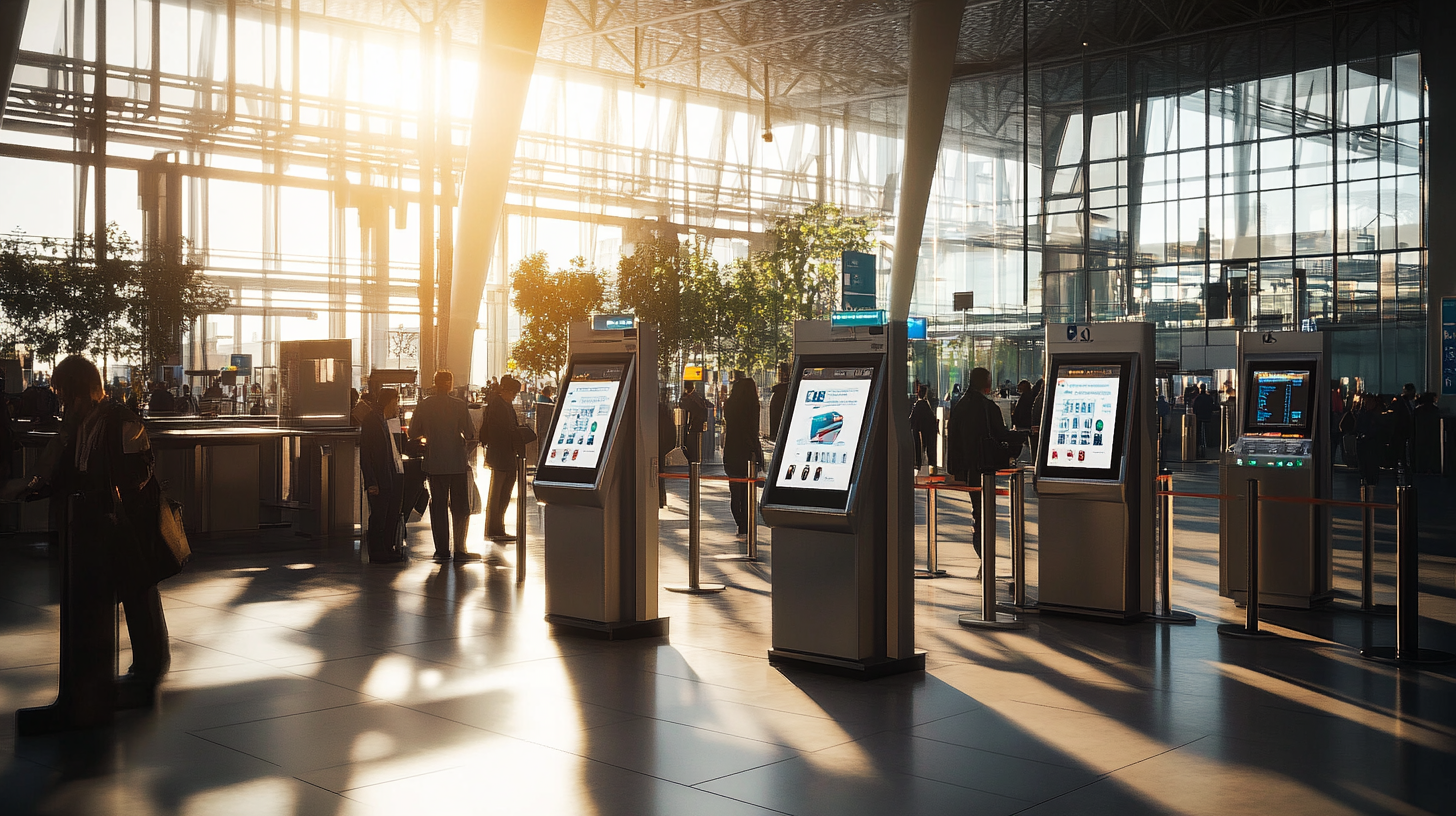
Airlines and travel companies are leveraging AI to enhance operational efficiency in numerous ways. AI algorithms analyze flight data, weather patterns, air traffic, and other variables to optimize flight routes, leading to reduced fuel consumption and shorter travel times. By predicting demand, airlines can adjust flight schedules and capacity, ensuring resources are utilized effectively. Predictive maintenance, powered by AI, allows companies like Boeing and Airbus to anticipate maintenance needs before issues arise, minimizing downtime and enhancing safety. Sensors on aircraft collect real-time data, which AI systems analyze to detect anomalies or wear and tear, scheduling maintenance proactively AI in predictive maintenance for aviation safety . This not only ensures passenger safety but also reduces unexpected delays and cancellations, improving the overall travel experience.
Lufthansa’s adoption of AI systems, including advanced weather forecasting tools, significantly improves operational efficiency by optimizing flight schedules and minimizing delays caused by adverse weather conditions. AI algorithms process vast amounts of meteorological data to predict weather patterns with high accuracy, allowing airlines to adjust flight paths proactively. Additionally, AI enables better resource allocation through intelligent crew scheduling, ensuring that staffing levels meet demand without overstaffing or understaffing. Fuel optimization is another critical area where AI makes a substantial impact; by analyzing factors like aircraft weight, weather, and route conditions, AI can determine the most fuel-efficient speed and altitude for flights. For instance, AI aids in hyper-personalization by offering passengers tailored services and automating airport operations, such as check-in and baggage handling, contributing to timely departures and arrivals AI’s role in airline operational efficiency . These advancements not only improve the passenger experience but also have significant environmental benefits by reducing carbon emissions.
AI in Airports and Security
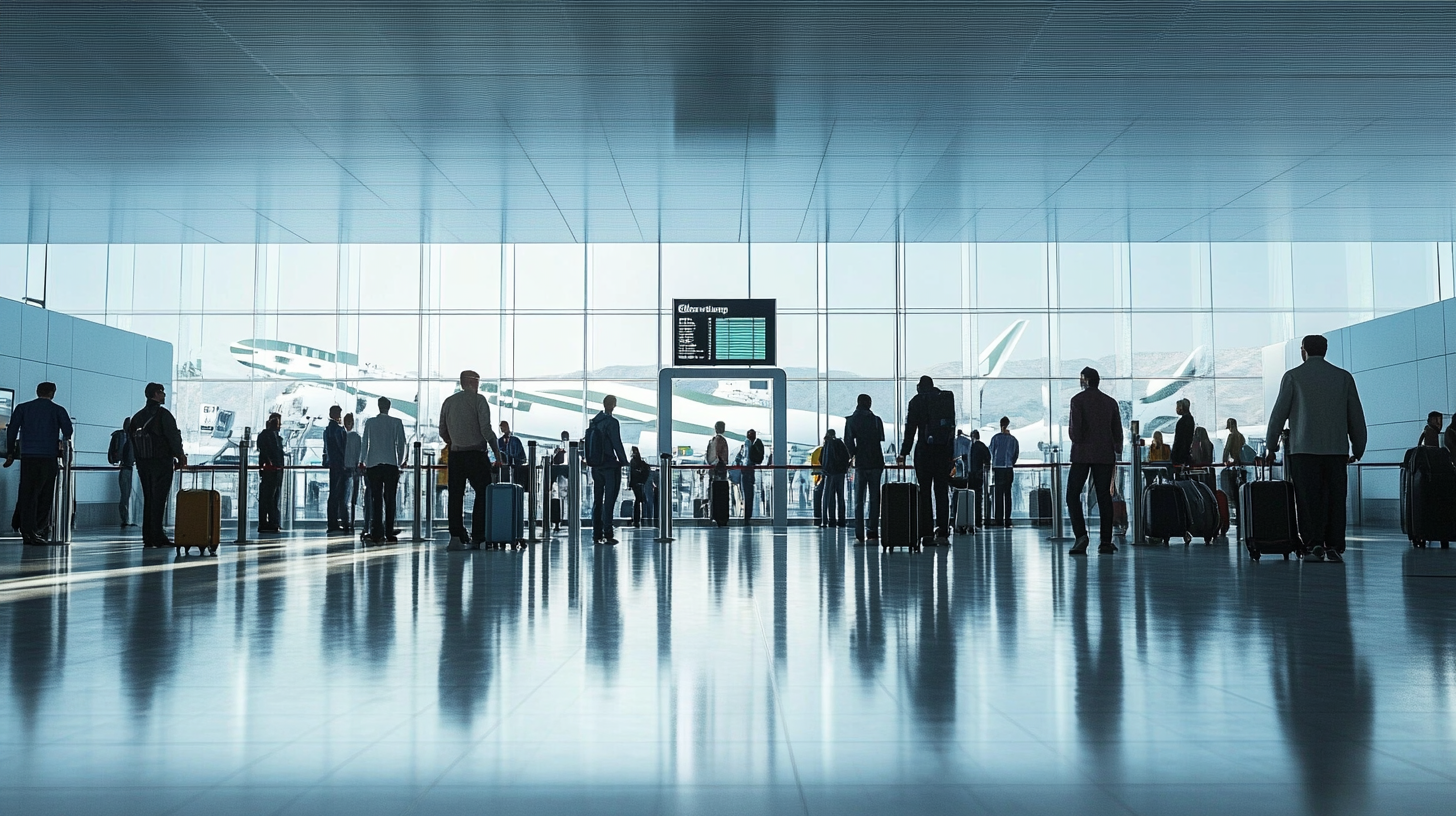
Airports are increasingly adopting AI technologies to enhance passenger experiences and streamline security processes. Facial recognition and biometric systems expedite check-in and boarding procedures, allowing passengers to move through airports more swiftly. These systems scan passengers’ faces or fingerprints, matching them with passport and ticket information, thereby reducing the need for manual document checks. AI enhances baggage handling by using image recognition and tracking technologies to sort and trace luggage, reducing cases of lost or misdirected bags. In security checks, AI systems can analyze X-ray images and detect prohibited items more efficiently than human operators, processing vast amounts of data quickly and accurately AI innovations in airport security and passenger processing . These advancements not only improve operational efficiency but also enhance security levels, ensuring safer travel for all passengers.
AI travel assistants at airports provide personalized assistance through interactive kiosks or mobile apps. These assistants offer real-time information on flight statuses, gate changes, and estimated wait times at security checkpoints. They can also provide directions within the airport, helping travelers navigate complex terminals. With multilingual support, AI assistants cater to international passengers, breaking down language barriers and reducing confusion. Predictive resource allocation through AI aids in managing airport operations more effectively by forecasting passenger flows and adjusting staffing and resources accordingly. For instance, if AI predicts a surge in passengers at certain times, additional staff can be scheduled to minimize wait times at security or check-in counters. These measures contribute to cost reductions by optimizing resource use and significantly improve passenger satisfaction through smoother airport experiences Enhancing airport operations with AI-driven passenger assistance .
Promoting Sustainability and Resource Optimization
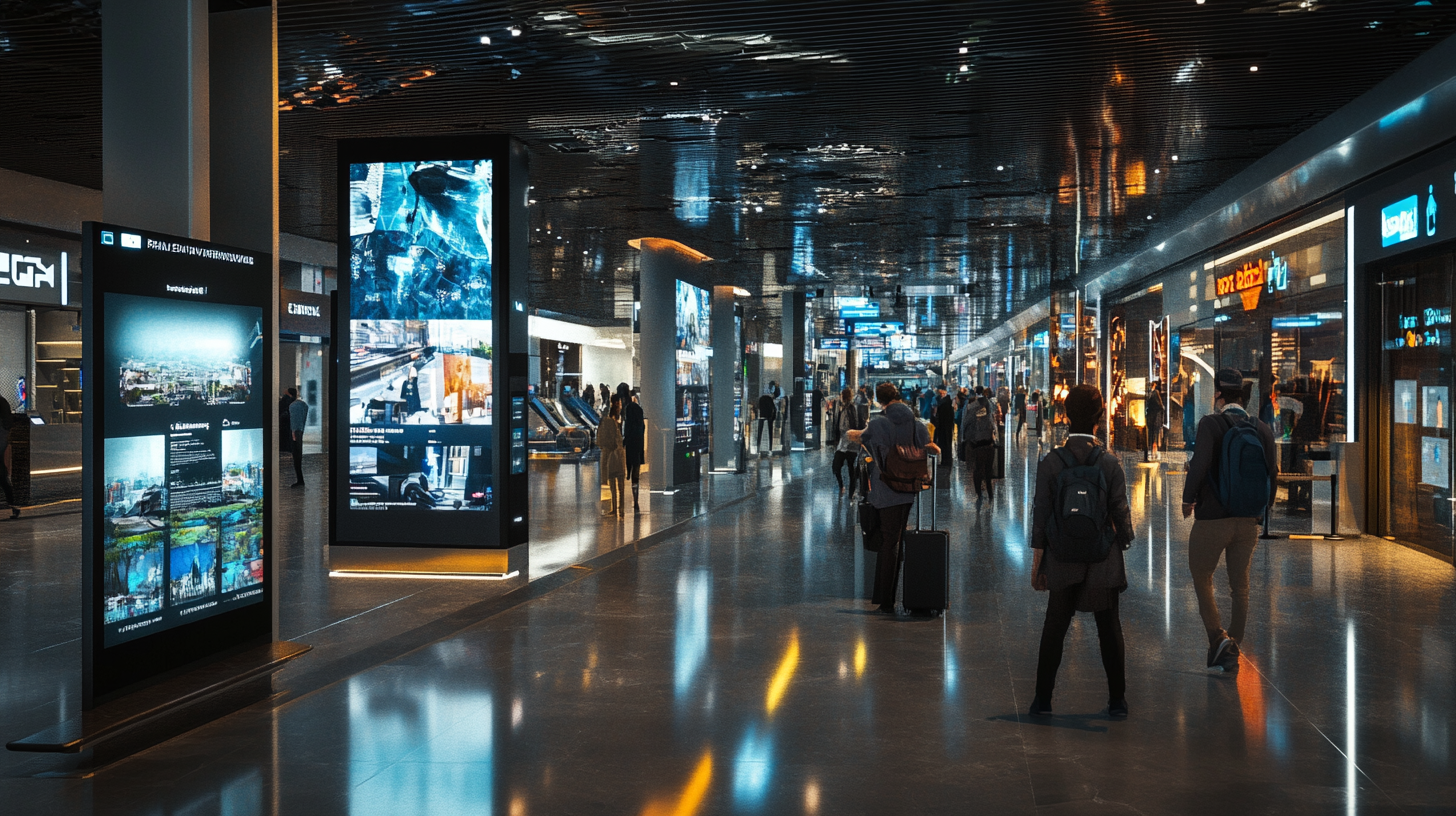
AI plays a pivotal role in promoting sustainability within the travel industry by optimizing resource usage and reducing environmental impact. In hotels, AI systems can adjust heating, ventilation, and air conditioning (HVAC) systems based on room occupancy and usage patterns, ensuring that energy is not wasted in unoccupied spaces. Smart lighting systems can dim or turn off lights automatically when rooms are vacant. AI also assists in waste reduction by predicting dining demands, helping hotels and restaurants reduce food waste. Additionally, AI helps regulate tourism in sensitive areas by analyzing visitor data to prevent over-tourism, thereby preserving natural and cultural heritage sites. For example, AI can forecast visitor numbers to popular destinations and suggest alternative itineraries or times to distribute tourist traffic more evenly AI’s contribution to sustainable tourism practices . This not only enhances the visitor experience by reducing overcrowding but also protects ecosystems and cultural sites from damage due to excessive foot traffic.
Smart hotel systems utilize AI to enhance efficiency and personalization on multiple fronts. Upon a guest’s arrival, AI can adjust room settings to their preferred temperature, lighting, and even suggest personalized entertainment options based on previous stays or stated preferences. Voice-activated assistants can provide guests with information and services without the need to contact the front desk. Technologies like smart power management and climate control not only improve guest comfort but also significantly reduce energy consumption, contributing to sustainability efforts. For instance, AI can learn a guest’s schedule to adjust settings accordingly, conserving energy when the room is unoccupied. These advancements align with the growing consumer demand for eco-friendly travel options, as more travelers prefer accommodations that are committed to environmental stewardship Implementing AI for sustainable and personalized hotel experiences . By adopting these technologies, hotels can attract environmentally conscious guests and differentiate themselves in a competitive market.
Challenges and Ethical Considerations
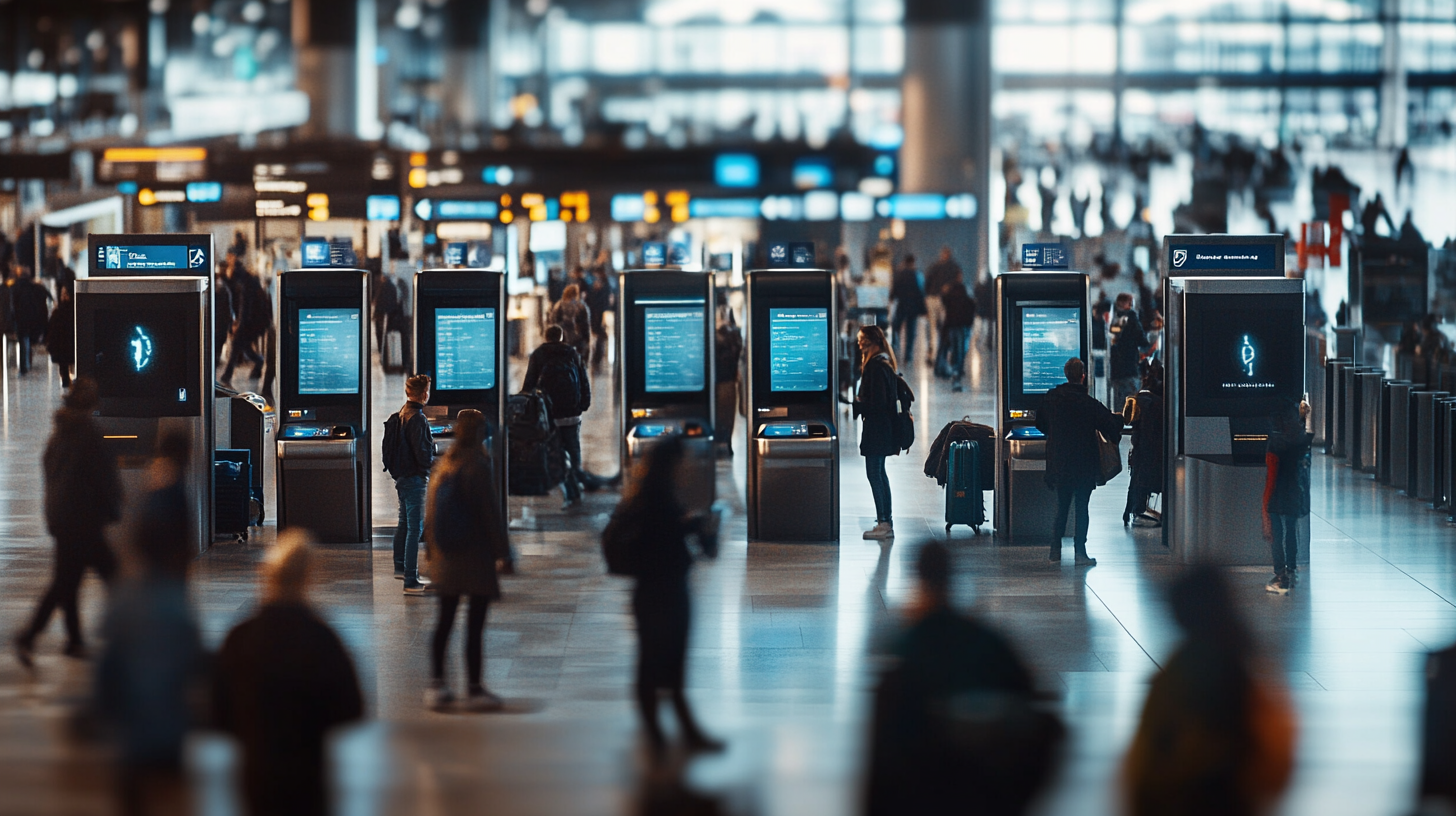
While AI offers numerous benefits, it also presents challenges that the travel industry must address. Privacy concerns are at the forefront, as AI systems often require access to personal data to function effectively. Travelers are increasingly aware of data privacy issues and are cautious about how their information is used and stored. This necessitates robust data management and security measures from companies utilizing AI. Compliance with regulations such as the General Data Protection Regulation (GDPR) is essential to avoid legal repercussions and maintain customer trust. Furthermore, the potential loss of personal touch is a significant issue. While AI can simulate human interactions, it cannot fully replicate the empathy and personalized attention that human agents provide. Companies must find a balance between leveraging AI for efficiency and retaining the human element that enhances customer experiences Ethical considerations in implementing AI in travel .
Ethical considerations such as bias in AI models and the need for transparency are paramount. AI systems learn from historical data, which may contain biases that lead to unfair treatment of certain groups. For instance, if an AI model is trained on data that underrepresents travelers from specific regions or backgrounds, the recommendations and services may not cater effectively to those customers. Companies like Mercan Hotels are facing challenges like data quality and bias while using AI to improve communication and marketing. To address these issues, AI systems must be designed with scalability and ethical standards in mind, incorporating diverse data sets and regular bias assessments to ensure they serve all customers fairly. Additionally, transparency in how AI algorithms make decisions is important for building trust with users. Customers should be informed about how their data is used and have the ability to opt out if they choose Addressing bias and ethics in AI applications within travel industry .
Maintaining a balance between technological efficiency and the human touch is crucial for the successful integration of AI in travel. The cost of implementing AI and ensuring compliance with data protection regulations are additional considerations for businesses. Investing in staff training to work alongside AI systems and developing strategies to mitigate risks associated with AI deployments are essential steps toward sustainable adoption.
The Future of AI in Travel
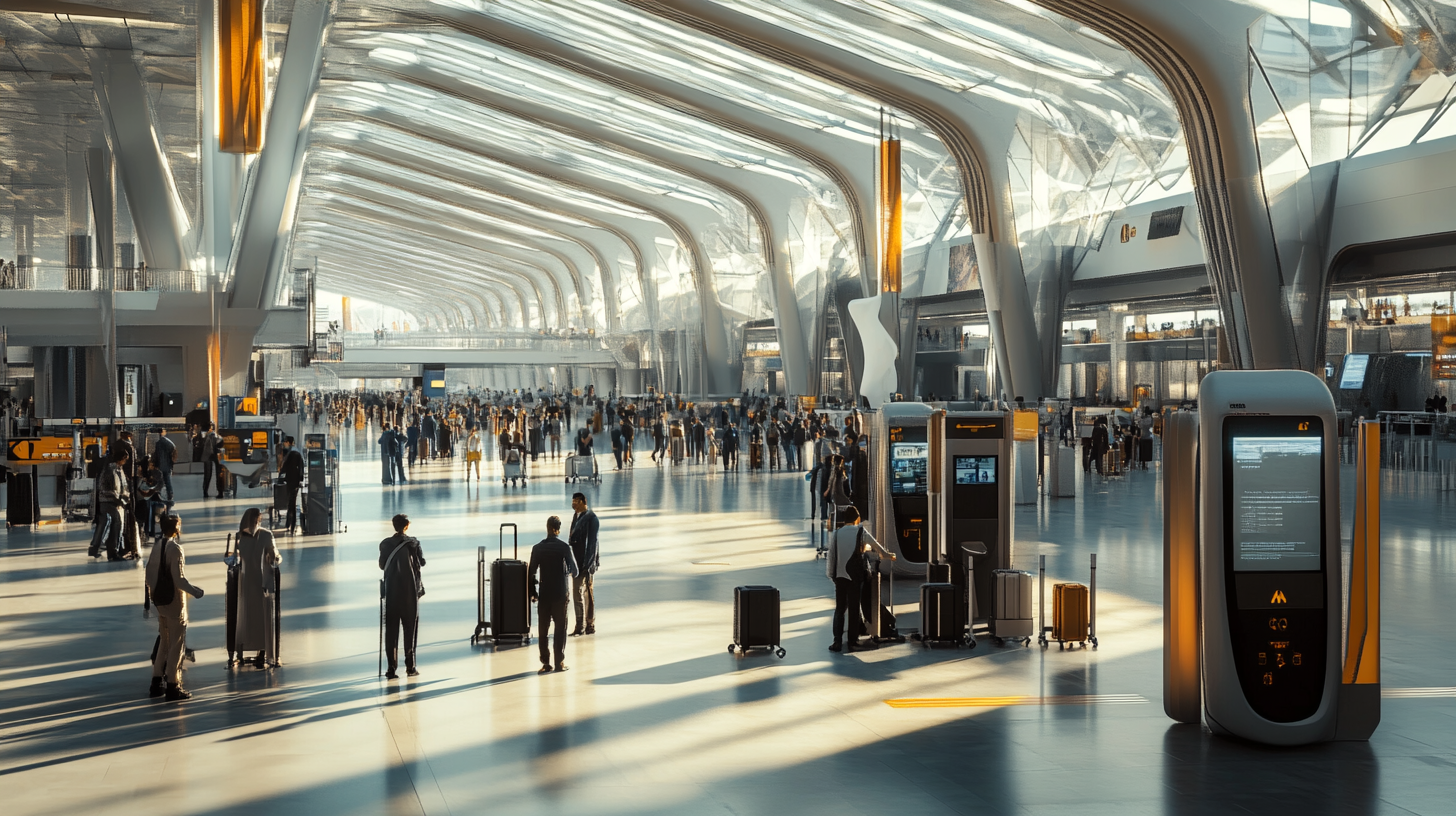
The future of travel is poised to be even more intertwined with AI advancements, promising to revolutionize the industry beyond current capabilities. While fully autonomous flights are not yet a reality, AI significantly augments current operations, leading towards that possibility. AI’s potential to tailor experiences for each traveler and aid in logistics could generate $2 to $4 trillion in value, according to a discussion by McKinsey partners Alex Cosmas and Vik Krishnan. Innovations such as AI-driven virtual reality travel planning, where travelers can virtually explore destinations before booking, are on the horizon. Furthermore, AI could play a pivotal role in refining dynamic pricing models, ensuring customers receive fair prices while maximizing revenue for travel companies The potential of AI to transform the future of travel . Emergency response during travel disruptions could also be enhanced with AI predicting and communicating issues before they occur, offering alternative solutions proactively.
AI could lead to autonomous aircraft, where AI systems manage not only the flight path but also respond to real-time conditions without human intervention, significantly reducing the potential for human error. In the near term, AI is refining pricing models through dynamic pricing strategies that adjust costs based on demand, competition, and other market factors, ensuring competitive yet profitable pricing. Enhancing in-flight conditions is another area of development; AI can monitor and adjust cabin conditions such as air quality, lighting, and temperature for optimal passenger comfort. Platforms like TripGenie offer instant, customized itineraries by analyzing user preferences and data, improving user satisfaction and engagement. Additionally, AI is aiding businesses through predictive maintenance, as mentioned earlier, reducing operational disruptions, and through dynamic pricing, optimizing revenue streams AI innovations leading the future of air travel . These advancements collectively contribute to making operations more efficient, sustainable, and customer-centric.
As AI capabilities evolve, travel is becoming more intuitive, deeply enriching, and poised for significant growth globally. AI enables a level of personalization and efficiency previously unattainable, potentially transforming the way people explore and experience the world. However, experts warn that while AI could revolutionize travel with personalized, efficient experiences, transformative change takes time, akin to past technological shifts like the adoption of the internet or mobile technology. The full potential of AI will only be realized if the industry addresses current challenges effectively. Maintaining ethical standards, ensuring data privacy, and retaining the essential human touch are critical factors. Continuous investment in research and development, along with collaboration across industry stakeholders, will be essential in fully harnessing AI’s potential in the travel industry Navigating the future of travel with AI and ethical considerations .
Final Thoughts
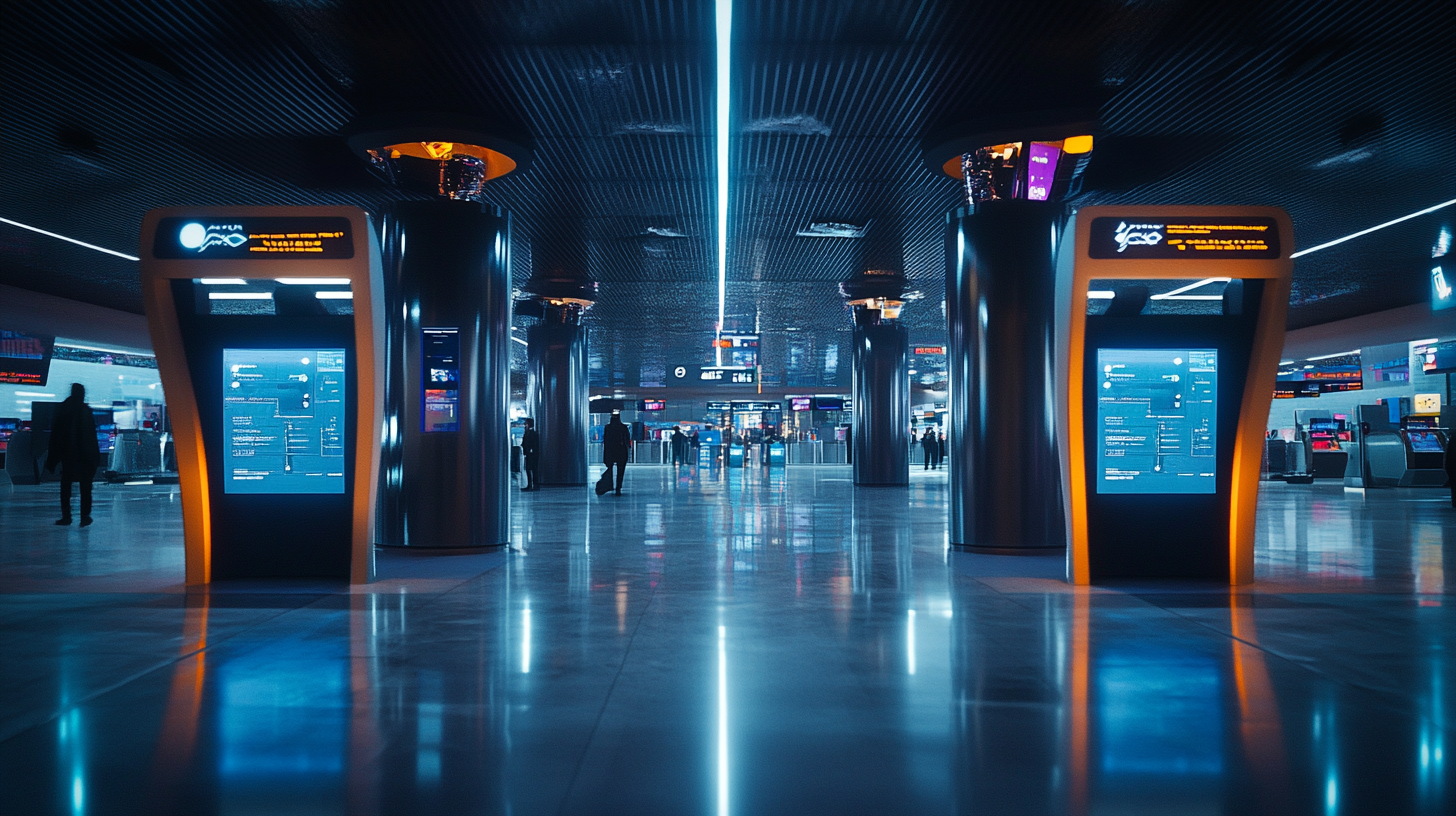
Artificial intelligence is undeniably transforming the travel industry from booking to boarding. By enhancing personalization, improving operational efficiencies, and promoting sustainability, AI is reshaping how we experience travel. Travelers now enjoy more tailored and seamless experiences, airlines and hotels operate more efficiently, and the environmental impact of travel is being addressed through smarter resource use.
While challenges such as privacy concerns and the need to maintain a personal touch remain, the benefits of AI integration are significant. As the industry continues to embrace AI, balancing technological advancements with human elements will be key to providing travelers with enriched, seamless experiences. Embracing AI responsibly will unlock new possibilities, making travel more intuitive, accessible, and sustainable for all.
Follow us back to Seat 5A for more insights and updates on the evolving world of travel technology.






